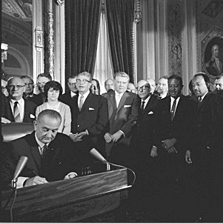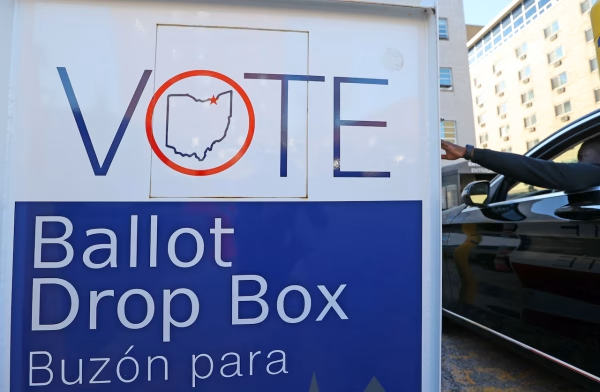The Right to Vote: Let's Not Forget Where We've Been and How Far We Need to Go


There are many dark days in our country’s history – and one of them is Sunday, March 7, 1965.
On that day, a young civil rights activist, John Lewis, led a march of more than 600 people across the Edmund Pettus bridge over the Alabama River, in protest of the brutality and bigotry African-Americans faced when trying to register to vote.
But before they could reach the bridge, Alabama State troopers and local police ordered the group to turn around. When they refused, officers shot teargas and beat the nonviolent protesters with clubs – leading to the hospitalization of more than 50 people.
“Bloody Sunday,” as it came to be called, heightened the African-American fight for the right to vote to a national level. Despite the passage of the Civil Rights Act of 1964, which secured other important rights, for example, in employment and public accommodations, minority voters continued to face violence, police abuse and workplace retaliation for attempting to register and vote.
So the struggle continued for the Voting Rights Act (VRA) of 1965. President Lyndon B. Johnson signed the landmark voting law on August 6, 1965, hoping it would put a stop to this violence against African-Americans and finally fulfill the promise of the 14th and 15th Amendments.
Earlier this month, Assistant Attorney General for Civil Rights, Thomas E. Perez, reminded us of the history of the VRA in a speech before the Americans Constitution Society, and explained that the right to vote is the “lifeblood of our democracy.”
Tomorrow night, Attorney General Eric Holder will speak at the LBJ Library about the ongoing battle to ensure every American can participate in our democracy. His selection of this venue evokes the 1960’s and the historic struggle to secure the vote for every American without unnecessary obstacle or burden.
Despite the progress our country has made since 1965, it would be foolish not to recognize that there is now, once again, a serious threat to the right to vote. Recently, a rash of state laws have passed that discourage voting. These various regressive state measures include laws that: require government-issued photo ID when voting in person; mandate proof of citizenship when registering to vote; eliminate the right to register to vote and to submit a change of address within the same state on Election Day; shorten the time allowed for early voting; make it more difficult for third-party organizations to conduct voter registration; rollback laws restoring the right to vote for people with criminal convictions; and eliminate a mandate on poll workers to direct voters who go to the wrong precinct.
These laws particularly harm low-income individuals, racial and ethnic minority voters, senior citizens and voters with disabilities. Today’s state efforts to stop the vote may be more subtle than in 1965, but the result is the same: pushing certain groups of people out of the electorate.
Through a multi-pronged effort of litigation and federal and state advocacy, the ACLU is on the front lines fighting this important battle. We have sent letters to the Department of Justice regarding several states’ discriminatory voting laws, submitted testimony for a voter suppression congressional hearing on Capitol Hill and have intervened in court cases where states are challenging the constitutionality of the VRA.
The right to vote is taken is often taken for granted, especially by those who may not appreciate the sacrifices of those who struggled on Bloody Sunday. But it is something we should not forget.
We need to remind our elected officials of this, too. After all, they should be seeking ways to encourage more Americans to vote, not inventing baseless reasons to deny voters the ability to cast their ballots.
We also need to continue to encourage the Attorney General Holder to make it a top priority for the DOJ to investigate these regressive state laws and stop their implementation if they are in violation of the VRA. I hope to hear from Attorney General Holder tomorrow on how we can work together to preserve every American’s access to the ballot.
Learn more about voting rights: Sign up for breaking news alerts, follow us on Twitter, and like us on Facebook.


